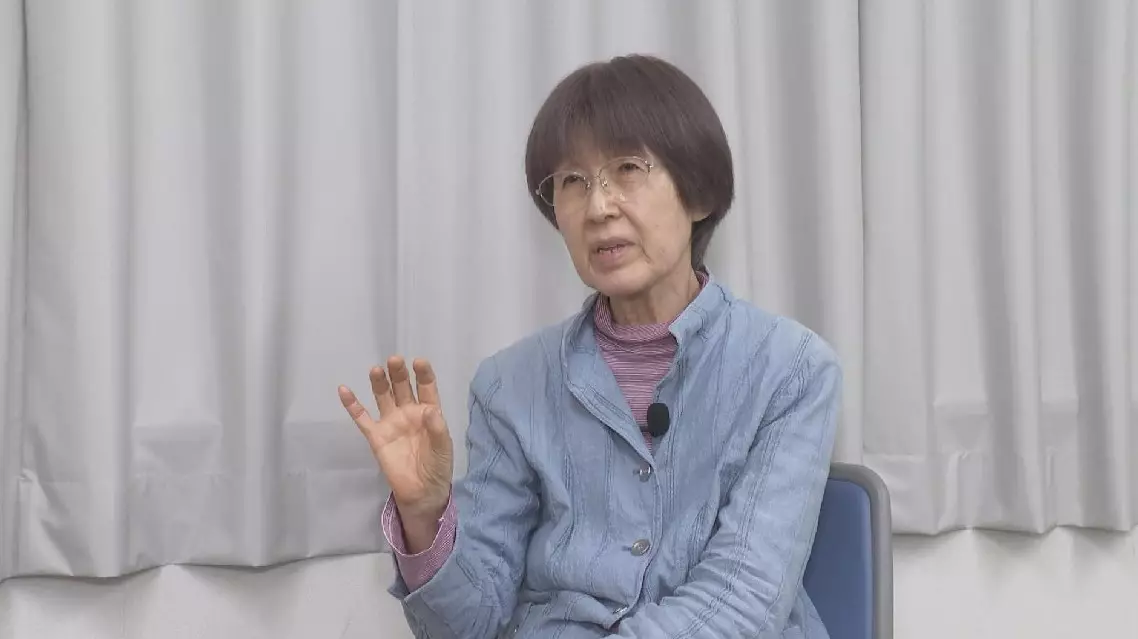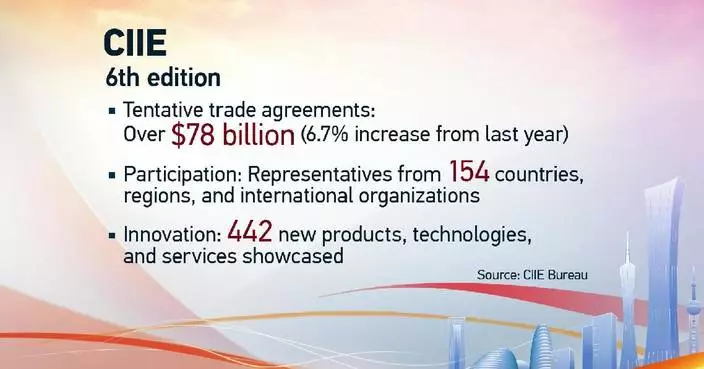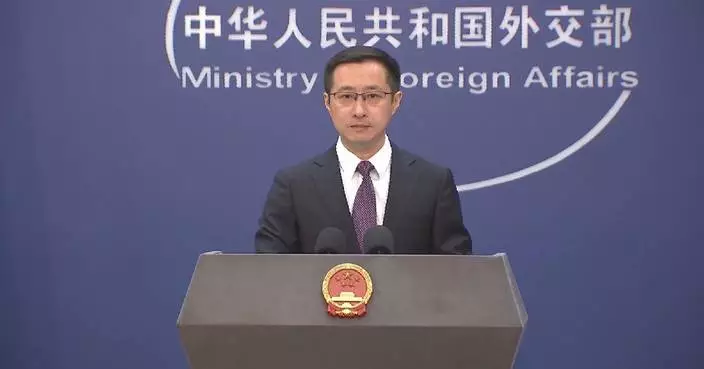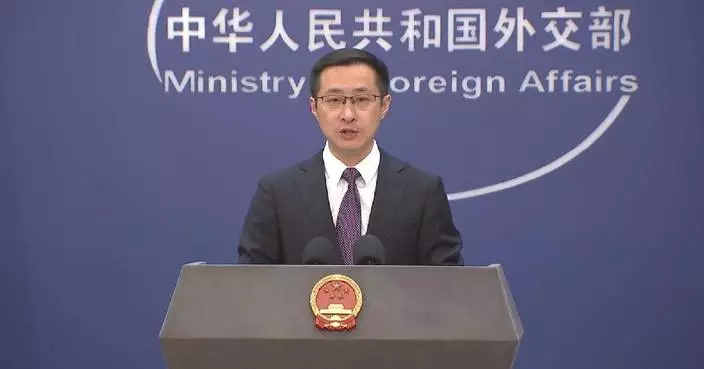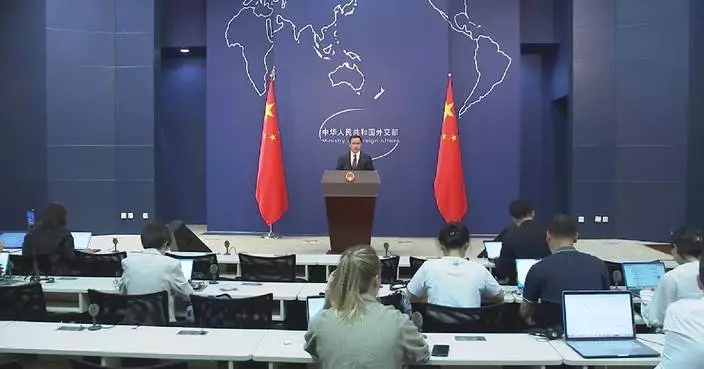A signed article by Chinese President Xi Jinping titled "Working Together for a Brighter Future of China-Tajikistan Relations" was published Friday in Tajik leading newspaper Narodnaya Gazeta and by the state-run Khovar News Agency.
Xi arrived in Dushanbe on Thursday for a state visit to Tajikistan.
The following is an English version of the full text of the article:
Working Together for a Brighter Future of China-Tajikistan Relations
Xi Jinping
President of the People's Republic of China
In this lovely midsummer season, I will pay a state visit to the Republic of Tajikistan at the invitation of President Emomali Rahmon. This will be my third visit to Tajikistan. I last set foot on this beautiful land five years ago. The famous Tajik poet Rudaki once said that nothing could compare to the joy of a reunion with family or friends. I look forward to my meeting with President Rahmon to jointly open up brighter prospects for China-Tajikistan relations.
China and Tajikistan, connected by mountains and rivers, share a common destiny. The ancient Silk Road bears witness to the 2,000-plus years of friendship between our two nations. Zhang Qian, a royal emissary of China's Han Dynasty (202BC-220AD), Xuanzang (Hiuen Tsang), an eminent monk of the Tang Dynasty (618-907) who traveled westward for Buddhist scriptures, and Chen Cheng, a diplomat of the Ming Dynasty (1368-1644) all left their footprints of friendship in Tajikistan. Sogdian merchants, traveling across the Eurasian continent, facilitated trade between China and Central Asia, West Asia, and even Europe, and made distinctive contributions to cultural exchanges and mutual learning among peoples along the Silk Road.
Thirty-two years ago, China and Tajikistan established diplomatic relations, opening a new chapter in our relations. Over the past three decades and more, China-Tajikistan relations have stood the test of the volatile international situations and maintained the momentum of sound and steady development. Our overall relationship has made a historic leap from good-neighborliness to a strategic partnership, and to a comprehensive strategic partnership. Together, we are committed to building a China-Tajikistan community with a shared future, blazing a successful path for growing relations between neighboring countries.
—China and Tajikistan treat each other with sincerity, respect and trust. We firmly support each other on issues that bear on our respective core interests, particularly independence, sovereignty and territorial integrity. We respect the development path that each has chosen in light of our respective national conditions. We resolutely oppose interference in internal affairs by any external force under any pretext. As always, we understand and support each other on issues related to our respective major concerns. We take pleasure in each other's progress in development and national revitalization. We have established cooperation mechanisms in key areas, which provide an important institutional guarantee for furthering bilateral relations. President Rahmon and I have met 15 times. We enjoy a good working relationship and a deep personal friendship as we jointly guide the development of China-Tajikistan relations.
—China and Tajikistan both pursue mutual benefit and win-win in cooperation. China has long been Tajikistan's largest source of investment and its major trading partner. Our two-way trade was close to four billion U.S. dollars in 2023, reaching another record high. Such strong momentum has continued in the first four months of this year. Tajikistan was among the first countries to participate in Belt and Road cooperation. A number of China-Tajikistan joint projects have been implemented, including a cement plant in Yavan, an agriculture technology demonstration center in Khatlon, and an agriculture and textile park in Dangara. They have helped upgrade Tajikistan's industrial technology and created thousands of local jobs. The China-Tajikistan highway and the Vahdat-Yavan railway tunnels, which are built by Chinese companies, make places along the routes more easily accessible. Premium green produce of Tajikistan such as cherries, lemons and grapes have steadily made their way to Chinese households and are quite popular among Chinese consumers. It is particularly heartening that the Tajik parliament building and government building, which President Rahmon and I jointly launched five years ago, will soon be completed. They will be new landmarks in Dushanbe and new symbols of China-Tajikistan cooperation.
—China and Tajikistan remain committed to mutual learning through friendly exchanges. The Confucius Institutes and the Luban Workshop have helped train a large number of Chinese speakers and technical personnel, who are now a vital force for the development and cooperation between our two nations. The Sino-Tajik Center for Traditional Chinese Medicine and the program of Lifeline Express International Sight Saving Mission that provides free cataract surgeries for patients in Tajikistan have contributed to public health in our two countries through a combination of traditional Chinese medicine and modern technology.
The Culture Day programs, seminars on specific subjects, student exchange programs, and the translation and publication of literature in our respective languages have helped foster greater mutual understanding and strengthened the ties between our two nations. These initiatives are akin to small streams that will ultimately converge to form a vast ocean of friendship between our two nations. There are now nine pairs of sister provinces/cities between our two countries. This is another example of how our friendship has been growing with vigor and vitality.
—China and Tajikistan treat each other with sincerity and stand in solidarity in times of challenge. In response to COVID-19, our two countries pulled together in combating the pandemic. We provided each other with a large number of medical supplies, and China sent professional medical teams to Tajikistan to assist in its COVID response. Together, we erected an ironclad line of defense against the virus. We timely consulted with each other and took actions together to resolve the issues concerning the Karasu-Kulma Pass, and ensured safe and smooth passage through the artery route of transportation and logistics. China and Tajikistan have maintained close coordination and collaboration on the international stage, supporting and responding positively to each other's major initiatives. Both of our countries firmly uphold the international system with the United Nations at its center, the international order based on international law, and the norms governing international relations underpinned by the purposes and principles of the UN Charter. We both endeavor to contribute to safeguarding international fairness and justice.
China and Tajikistan are both at a critical stage of national development and revitalization. China is pursuing high-quality development and advancing high-standard opening up. The Chinese people are working in unity to build China into a great modern socialist country in all respects, and to advance the great rejuvenation of the Chinese nation on all fronts through a Chinese path to modernization. Tajikistan is making great strides on its path to realizing the National Development Strategy of the Republic of Tajikistan up to the period of 2030. I look forward to my meetings with President Rahmon to discuss how best to promote closer cooperation and bring our bilateral relationship to new heights.
—We need to improve the top-level design for our relationship to ensure its steady development in the right direction. We need to maintain high-level exchanges as frequently as necessary, deepen our experience sharing on governance and build stronger mutual political trust so as to always keep the relationship on the right track. We need to deepen our cooperation at all levels and in all areas, and spare no effort to implement the top-level consensus in full so as to add an enduring momentum to the China-Tajikistan relationship.
—We need to expand results-oriented cooperation to provide stronger material foundations for China-Tajikistan relations. China will work with Tajikistan to strengthen complementarity between the Belt and Road Initiative and the National Development Strategy of Tajikistan up to the period of 2030 as a concrete step to boost our respective development and revitalization. We need to consider new measures for trade promotion and expansion, accelerate the construction of the key section of the China-Tajikistan highway, and open more direct flights in response to the travel needs of our peoples. Other areas of cooperation include high and new technologies such as new energy vehicle, solar panel and satellite communication. China will import more premium produce from Tajikistan, and encourage strong Chinese companies to make more investments in Tajikistan as a step to help modernize its industrial system.
—We need to deepen security cooperation and build a strong development security shield. We need to jointly act on the vision of common, comprehensive, cooperative and sustainable security, enhance exchange between our law enforcement and security agencies, crack down on terrorist, extremist and separatist forces such as ETIM, and prevent and combat infiltration and sabotage by terrorists and extremists. We should remain resolute in opposing any attempt by external forces to interfere in our internal affairs or to undermine regional stability, so as to provide strong and effective safeguards for the development of our countries.
—We need to promote people-to-people and cultural exchanges to strengthen public support for a lasting friendship between our two nations. We welcome more Tajik friends to China for sightseeing, academic studies, as well as investment, business and exchange opportunities. China will continue to expand cooperation with Tajikistan in such areas as culture, education, health and sports. I hope to see more exchanges between our young people and more exchanges at subnational levels. I also hope our people-to-people exchanges will be as frequent as those between relatives. The Luban Workshop, Confucius Institutes, and the Sino-Tajik Center for Traditional Chinese Medicine are expected to play a greater role. We need to accelerate the mutual establishment of cultural centers, and expand cooperation at subnational levels as steps to ensure that China-Tajikistan friendship is sustained through generations.
—We need to enhance unity and collaboration and help foster an international environment favorable for peace and development. The two sides need to step up coordination and collaboration on multilateral platforms such as the United Nations, the Shanghai Cooperation Organization, and the China-Central Asia mechanism. We need to practice true multilateralism and promote an equal and orderly multipolar world and universally beneficial and inclusive economic globalization. We need to deliver on the Global Development Initiative, the Global Security Initiative and the Global Civilization Initiative, stand up for our common interests and those of other developing countries, and make our contributions to safeguarding international fairness and justice.
A Chinese poet in the Tang Dynasty once wrote, "One can enjoy a grander sight by climbing to a greater height." We from China look forward to working with our Tajik friends to draw a new blueprint for stronger China-Tajikistan friendship, write a new chapter in our mutually beneficial cooperation, and create a brighter future of our two nations.
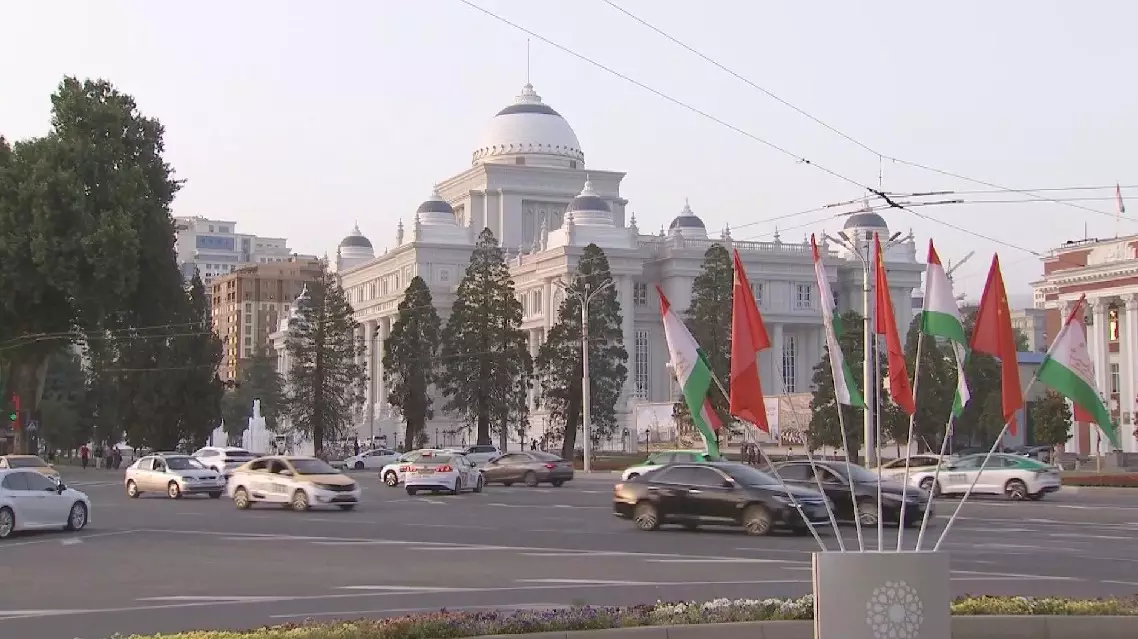
Xi's signed article published in Tajik media
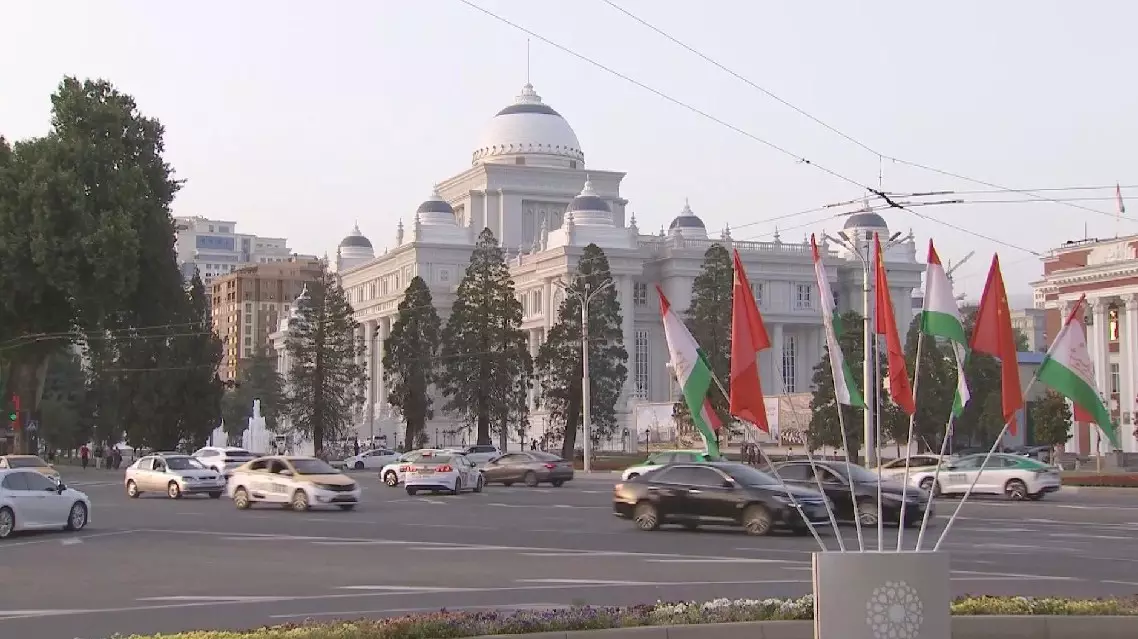
Xi's signed article published in Tajik media


